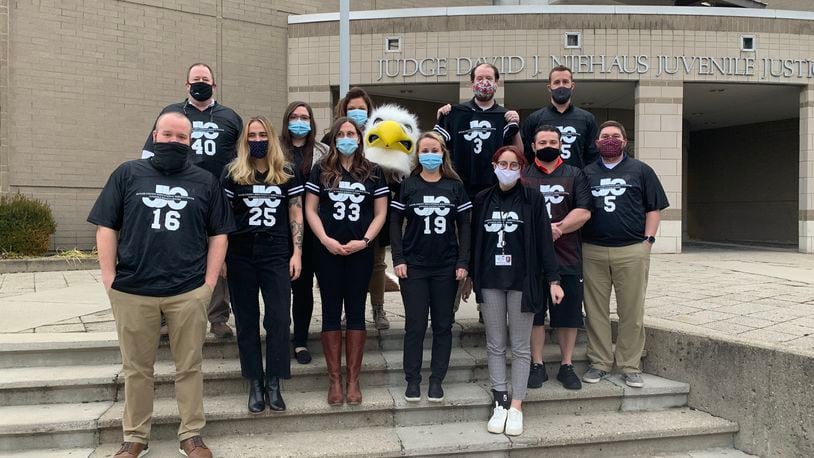That motto, adopted by Sarah Burk, director of alternative programs for juvenile centers, led the former Madison Schools special education director to hand-pick a small team of teachers in 2016, and the staff has since grown to 14 instructors.
And the program even has its own costumed eagle mascot with the uplifting nickname of Soar.
“The education process is an important component of the work that is performed in our facilities,” said Jason Gundrum, superintendent of corrections at the BCJJC.
“Youth in our care have often lacked the necessary motivation, opportunity and support to fully engage in the educational process. It is with that recognition in mind that BCESC and facility staff work in conjunction to provide these crucial educational opportunities for youth placed in the detention or rehabilitation setting,” said Gundrum.
Despite some obvious differences in the learning environment, lessons are designed to emulate a traditional classroom setting where students receive much of the same education curricula as their non-incarcerated peers.
Classes include math, language arts, science, social studies and physical education/wellness five days a week but the teens also participate in a wide range of group activities and receive individualized instruction.
Their parents and guardians are also involved through periodic teacher conferences to discuss their child’s progress. And intervention specialists are on staff to provide specialized instruction and follow students’ individualized education programs (IEPs).
But the goal isn’t limited to a high school diploma.
Qualified students can earn school credits toward college or instructional credits toward vocational careers.
The program has seen 25 high school teens graduate directly from the detention center – three in January – and more students return to successfully finish their high school learning at various school districts throughout Butler County.
Some students choose a college or career pathway while at BCJJC, where they have access to simulators, e-learning materials and certification opportunities to prepare them for future careers in construction, retail, customer service, sales or culinary arts, said officials.
They learn life skills like how to cook, drive a car, balance a budget and live independently. Students participate in book studies and reenactments, and a panel of business and community volunteers teach them the importance of soft skills through mock interviews and career fairs.
“The goal of our program is to develop students into self-sufficient, competent, reliable and resilient individuals who become marketable employees,” said BCJJC transition and vocational specialist Kristin Kwiat.
About the Author
